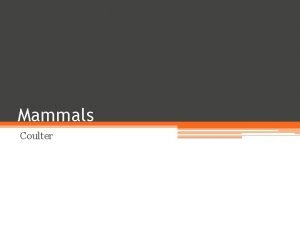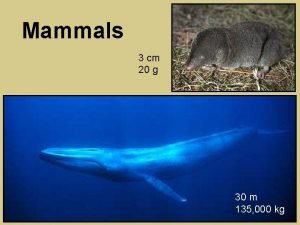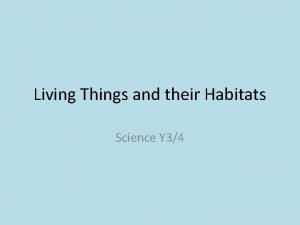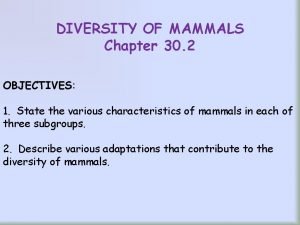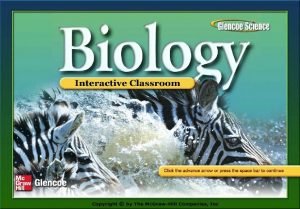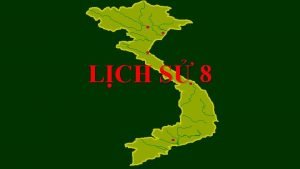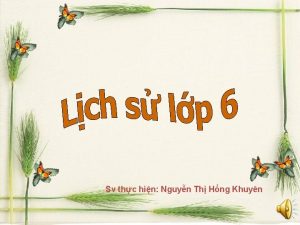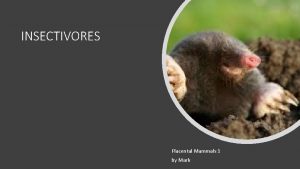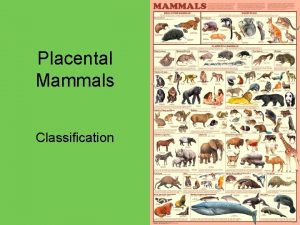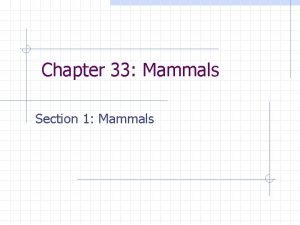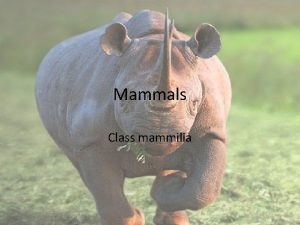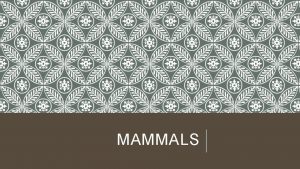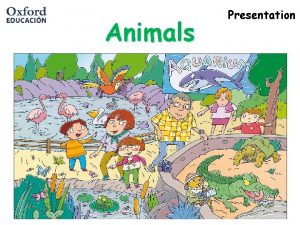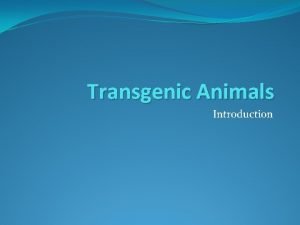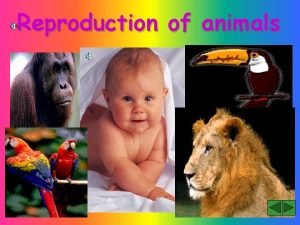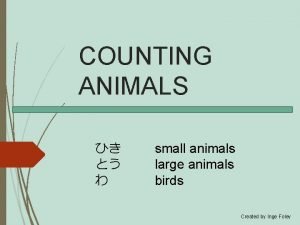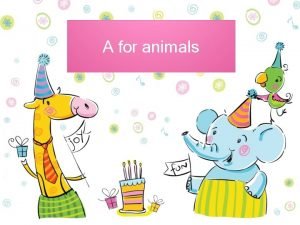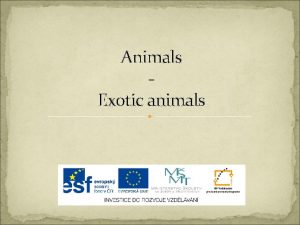DIVERSITY OF MAMMALS Placental Mammals Animals that develop
















- Slides: 16

DIVERSITY OF MAMMALS

Placental Mammals ◦ Animals that develop in the uterus of the mother. All nutrients, oxygen, carbon dioxide, and waste are exchanged between the embryo and mother through the placenta. ◦ Benefits ◦ Protection ◦ Nourishment ◦ Oxygen movement ◦ Removing Wastes ◦ The time a mammal is in the uterus is called gestation.

Order Lagomorpha ◦ Rabbits, pikas, hares ◦ Hind legs for jumping ◦ Long front teeth that grow through the whole life

Order Primates ◦ Very intelligent ◦ Apes (chimps, orangutans, gorillas, and gibbons), lemurs, monkeys, and humans

Order Carnivora ◦ Cats, cat-like animals, dog-like animals, sea lions, walruses, bears, skunks, and weasels ◦ Have long, pointed canines and incisors ◦ Have strong jaws ◦ Have some claws

Order Rodentia ◦ Porcupines, beavers, chipmunks, mice, and rats ◦ Largest order ◦ Live everywhere ◦ Razor sharp teeth to gnaw on hard seeds, bark, twigs, and roots

Order Cetacea ◦ Dolphins, porpoises, and whales ◦ Very intelligent ◦ Complex brains ◦ Little or no hair ◦ Breathe through blow holes

Order Sirenia ◦ ◦ Manatees and dugongs Live in tropical waters Often injured by speed boats Can stay underwater for 15 minutes ◦ Breath on the surface ◦ Have tails and front flippers ◦ Also called sea cows

Order Insectivora ◦ Moles ◦ Good diggers ◦ Poor eyesight ◦ Eat insects ◦ Pointed snouts and sharp claws

Order Perissodactyla ◦ Includes horses, rhinoceroses, and tapirs

Order Edentata ◦ Armadillo, sloths, and anteaters ◦ Have plates of bones to protect their body ◦ Good diggers

Order Artiodactyla ◦ Hippos ◦ Usually vegetarians

Order Chiroptera ◦ Bats ◦ Good pollinators ◦ Eat fruit or insects ◦ Use echoes to locate things ◦ Only group of mammals to fly

Order Proboscidea ◦ Elephants ◦ One pair of incisors that are modified into tusks ◦ Have trunks

Marsupials ◦ Opossums, kangaroos, and kolas ◦ The young develops for a short time in the body and then a period of time in a pouch made of skin and hair

Monotremes ◦ Platypus and Echidnas ◦ Mammals that lay eggs ◦ Found only in Australia, Tasmania, and New Guinea
 Mammals characteristics
Mammals characteristics Pelycosaurs
Pelycosaurs Groups of invertebrates animals
Groups of invertebrates animals 32-1 introduction to mammals answer key
32-1 introduction to mammals answer key Chapter 30 section 2 diversity of mammals
Chapter 30 section 2 diversity of mammals Chapter 30 section 1 mammalian characteristics
Chapter 30 section 1 mammalian characteristics Mammals animals
Mammals animals Thơ thất ngôn tứ tuyệt đường luật
Thơ thất ngôn tứ tuyệt đường luật Gây tê cơ vuông thắt lưng
Gây tê cơ vuông thắt lưng Tôn thất thuyết là ai
Tôn thất thuyết là ai Phân độ lown
Phân độ lown Walmart thất bại ở nhật
Walmart thất bại ở nhật Sau thất bại ở hồ điển triệt
Sau thất bại ở hồ điển triệt Block xoang nhĩ
Block xoang nhĩ Tìm vết của đường thẳng
Tìm vết của đường thẳng Thể thơ truyền thống
Thể thơ truyền thống Con hãy đưa tay khi thấy người vấp ngã
Con hãy đưa tay khi thấy người vấp ngã
